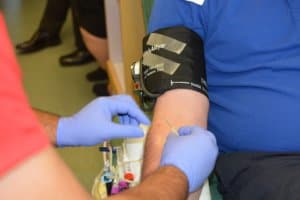Give Blood Warrenpoint
Tuesday 20 March 2018
Warrenpoint Town Hall
2pm- 4pm and 5.15pm – 8pm
Blood donation is essential! It could be the gift of live you give to someone!
Why Give Blood? It saves lives!
New blood donors have been dropping in numbers in recent years. It is estimated that more than a quarter of us will require a blood transfusion at some point in our lives but only 4% of the population makes a regular blood donation.
It is a matter of live or death for someone!
[arve url=”https://www.youtube.com/watch?v=rTZdFd8gbCA” /]
You can give blood if you are
are fit and healthy
weigh over 7 stone 12 lbs or 50kg
are aged between 17 and 66 (or 70 if you have given blood before)
are over 70 and have given blood in the last two years
Before you give blood you will be asked if you are:
receiving treatment
taking medication
travelling outside of the UK
tattoos
pregnancy
illness
cancer
received blood, blood products or organs
Who cannot donate blood?
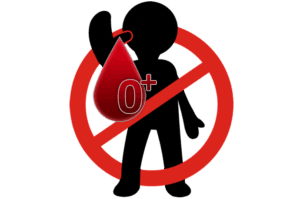
The following information has been taken from the Northern Ireland Blood Transfusion Service website – please find a link to website below.
General Health Issues

Colds and coughs
You can donate once you are recovering.
Cold sore
You should wait until it is healing and for a few days after the pain has subsided before donating.
Sore throat
You can donate once you are recovering. If you required antibiotics you must wait 7 days from completing the course.
Measles, mumps, chickenpox, shingles, rubella
You can donate if it has been more than 2 weeks since recovery.
Influenza
You can donate if it has been more than 2 weeks since recovery.
Antibiotics
You should not donate if taking antibiotics. You must wait at least 7 days from completing antibiotics before donating.
Diarrhoea and/or vomiting
You can donate if it has been more than 2 weeks since recovery, (you must not donate if Diarrhoea is due to Inflammatory bowel disease).
Medical Conditions
You can donate if you have:
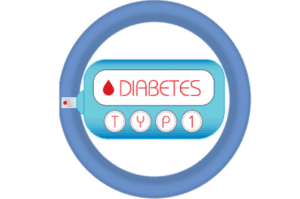
Diabetes
Provided you have not had any diabetic related complications, and any oral medication you are taking has not been changed in type or dose in the last 4 weeks. You cannot donate if you are taking insulin.
High blood pressure
Provided you have not had any complications, and any medication you are taking has not been changed in type or dose in the last 4 weeks.
High cholesterol
Provided you have not had any complications.
Genetic Haemochromatosis
Blood from Genetic Haemochromatosis (GH) patients can be used for transfusion to patients. GH patients must meet the same selection rules as apply to other blood donors.
GH patients wishing to donate their blood can attend the Northern Ireland Blood Transfusion Service (NIBTS) instead of the hospital or GP clinic following a referral from their supervising doctor.
There are a number of medical conditions that exclude you from becoming a donor. This is to protect both your health and the health of the recipient.
You can not donate if you have:
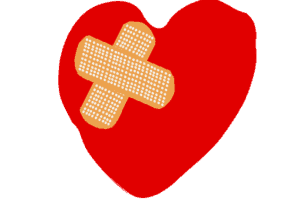
Heart disease
Chronic lung disease
You can donate if you have asthma provided you have no symptoms at the time of donation and you do not require high doses of anti-asthma medication.
Stroke and Transient ischaemic attack (TIA)
A ‘mini-stroke’
Epilepsy
Or other central nervous system disease.
Cancer
Even if you had this a long time ago.
Inflammatory bowel disease
Crohn’s disease and Ulcerative colitis.
Autoimmune disease
(e.g. Rheumatoid arthritis, SLE – systemic lupus erythematous) if you have required treatment to suppress the condition in the last 12 months. Painkilling drugs such as non-steroidal anti-inflammatory drugs and physical therapy such as physiotherapy are not considered treatments to suppress the condition.
Medication
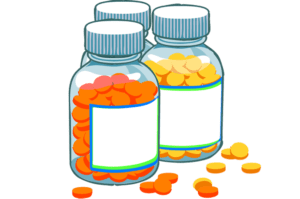
The taking of some medication may make a donor ineligible. In most circumstances it is the condition that medication is being taken for, rather than the medication itself, that will lead to deferral.
Antibiotics
You must wait at least 7 days from completing antibiotics before donation.
Contraceptive use
You can donate if taking contraceptives.
Hormone replacement therapy
If you are on treatment for the menopause, its symptoms, or for osteoporosis prevention you can donate.
Blood pressure
You can donate provided your medication has not been changed in type or dose in the last 4 weeks. You must also not have had any complications of your condition.
Cholesterol medication
You can donate while on medication, if you have Heart Disease or other complications of high cholesterol you can not donate.
Tablets for diabetes
You can donate provided your medication has not been changed in type or dose in the last 4 weeks. You should not donate if you are on insulin or have had any diabetic related complications.
Anti-depressants and anti-anxiolytics
Medication for anxiety, depression or bipolar disorder does not exclude you as a donor provided your condition is stable.
Painkillers
The reason for taking painkillers will be assessed by our staff. If you are otherwise fit to donate, we can accept you as a donor. The blood of anyone who has taken medication in the last 7 days that can interfere with platelet function (e.g. aspirin, plavix, non-steroidal anti-inflammatory drugs) can be used for red cells but may not be suitable for platelets.
Anticoagulant therapy
You should not donate if receiving anticoagulant treatment. (e.g. warfarin, rivaroxaban, apixaban and others )
Dentist

Filling, scale and polish
Wait 24 hours before donating.
Extraction, root canal treatment, dental capping (crown)
Wait 7 days before donating.
Major Surgery

You should not donate if you have had any surgical procedure within the last 6 months resulting in an inability to return to normal activities of daily living (e.g. routine housework, previous employment and/or driving).
Minor Surgery
For minor surgery you must wait at least 7 days before donating.
Endoscopy
You should not donate if you have had any flexible endoscopic procedure (e.g. flexible sigmoidoscopy, colonoscopy, OGD) within the last 4 months.
If the examination has been carried out with a rigid endoscope (e.g. colposcopies, most arthroscopes & laproscopies) and you are well and not waiting for further tests or results, you should be able to donate.
Upcoming surgery
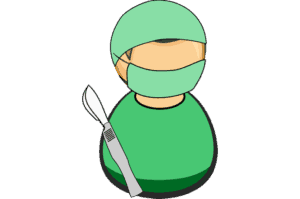
You should not donate if you are waiting for surgery that is likely to require transfusion or you are having surgery for any serious medical condition
Malaria
If you have visited any malarial area please wait for 12 months after your return before donating blood.
Tattoos and Piercing

You should not donate if you have had a tattoo, ear or body piercing, or permanent and semi-permanent make-up within the last 4 months.
Acupuncture
If you have had acupuncture performed by NHS staff or outside the NHS by a Qualified Health Care Professional, you can donate.
If you were treated by someone who was not a registered Health Care Professional, you’ll have to wait 4 months before you can donate.
Pregnancy

You should not donate if you are pregnant or less than 6 months have passed since delivery or pregnancy. During pregnancy a woman loses a considerable amount of iron to the baby. It is important to allow time for this lost iron to be replaced through the mother’s diet.
Sexual Relations and Lifestyle
You must never donate if:
You have ever received money or drugs for sex.
You have ever injected, or been injected with, drugs; even a long time ago or only once. This includes bodybuilding drugs and injectable tanning agents. You may be able to give if a doctor prescribed the drugs. Please ask.
You must not donate for at least 12 months after sex (even if you used a condom or other protective) with:
A partner who is, or you think may be:
HIV or HTLV positive
a Hepatitis B carrier
a Hepatitis C carrier
(if you are a man) another man. This includes anal and oral sex.
(if you are a woman) a man who has ever had oral or anal sex with another man, even if they used a condom or other protective.
A partner who has ever received money or drugs for sex
A partner who has ever injected, or been injected with, drugs; even a long time ago or only once. This includes bodybuilding drugs and injectable tanning agents. You may be able to give if a doctor prescribed the drugs. Please ask.
A partner who has, or you think may have been, sexually active in parts of the world where HIV/AIDS is very common. This includes most countries in Africa. There are exceptions, so please ask.
Men who have sex with men (MSM)
In June 2016 the Northern Ireland Minister of Health announced an end to the lifetime deferral on blood donation by men who have had sex with men.
Currently, men who have sex with men in the last 12 months are deferred from donating blood for a period of 12 months.
Men who last had sexual contact with another man more than 12 months ago are able to give blood in Northern Ireland if they meet the other blood donor selection criteria.
Previous Blood Transfusion
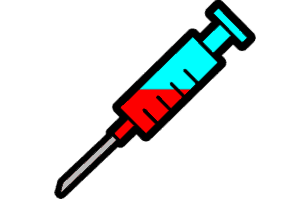
You should not donate if you have received, or think you may have received a blood transfusion anywhere in the world since January 1st 1980. This also applies to any human tissue you may have received from another individual (dura mater grafts, corneal and scleral tissue grafts, human pituitary derived extracts).
This was introduced in 2004 as one of the measures to reduce the risk of variant Creutzfeldt-Jacob disease (vCJD).
You should not donate if diagnosed with any form of CJD, or you have had two or more blood relatives develop a prion-associated disease.
Waiting for results for test results and investigations
A donor must not donate if waiting for investigation or the results of investigations for an undiagnosed condition which might lead to deferral.
You can donate for ‘routine’ investigations, such as:
attending for a cervical smear, mammogram, or a well person clinic when no abnormality is expected
or for the routine monitoring of a condition, such as diabetes controlled by diet or oral medication, which of itself would not be a cause for deferral.
Endoscopy
You should not donate if you have had any flexible endoscopic procedure (e.g. flexible sigmoidoscopy, colonoscopy, OGD) within the last 4 months.
If the examination has been carried out with a rigid endoscope (e.g. colposcopies, most arthroscopes & laproscopies) and you are well and not waiting for further tests or results, you should be able to donate.
Immunization
You must not donate having received a Live immunizations (such as: BCG, MMR, oral polio, smallpox)
if it is less than 8 weeks from administration
and/or the inoculation site has not healed
Non-live immunizations (e.g. Influenza):
Hepatitis B vaccine – if no exposure you must wait at least 7 days after last immunization was given.
For non-live immunizations (other than Hepatitis B), if you are well on the day, you can donate.
Tetanus – you must not donate if it is less than 4 weeks from exposure to a tetanus risk injury or receipt of tetanus immunoglobulin. If you were not exposed but given tetanus immunization as a precautionary measure, you can donate.
Hazardous Occupations or hobbies

A hazardous activity is something that may put either the donor or others at high risk of serious injury or death if the donor were to suffer a delayed faint following donation.
Hazardous Occupations examples include but are not limited to –
- Air traffic controllers
- Crane or heavy machine operators
- Fire crew
- Large goods vehicle drivers
Hazardous Hobbies examples include –
- Climbing
- Diving
- Motor sport
- Parachuting
You must not donate if you are required to undertake a hazardous activity following donation on the same day.
Infectious disease
You must not donate if you are known to be positive for:
HIV
Hepatitis
Human T-cell lymphotropic virus (HTLV)
Malaria
Current Sexually transmitted disease
(e.g. chlamydia, genital herpes, and syphilis). Note many donors with treated syphilis will persistently test positive to the screening tests, even if treated many years ago. Therefore, if you have ever had syphilis unfortunately you will not be able to donate.
Northern Ireland Blood Transfusion Service
Check out the video if to see what happens when you give blood
[arve url=”https://www.youtube.com/watch?v=FXmkVg8a2Mo” /]

